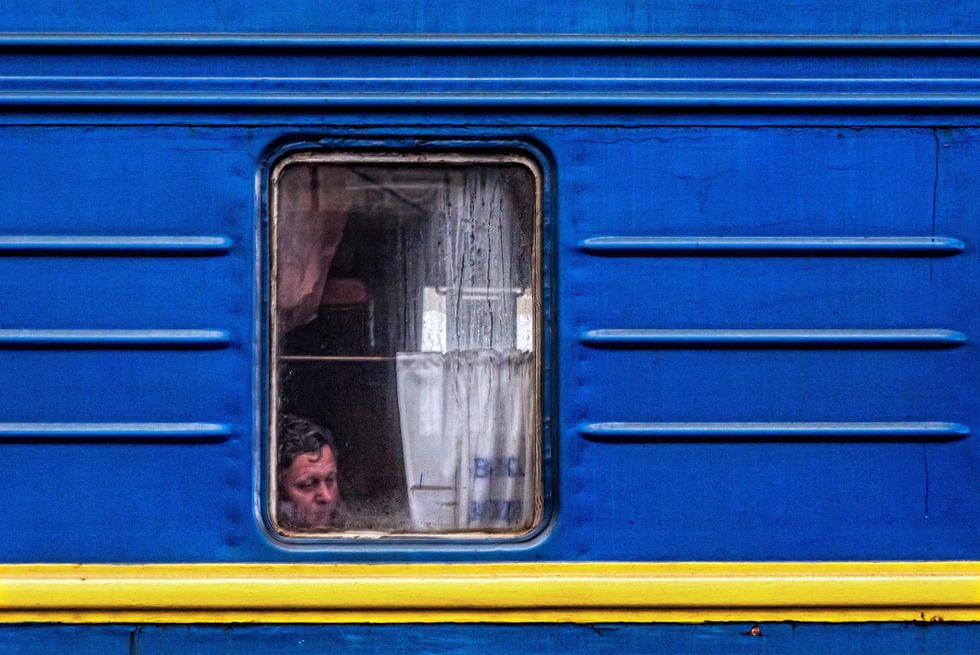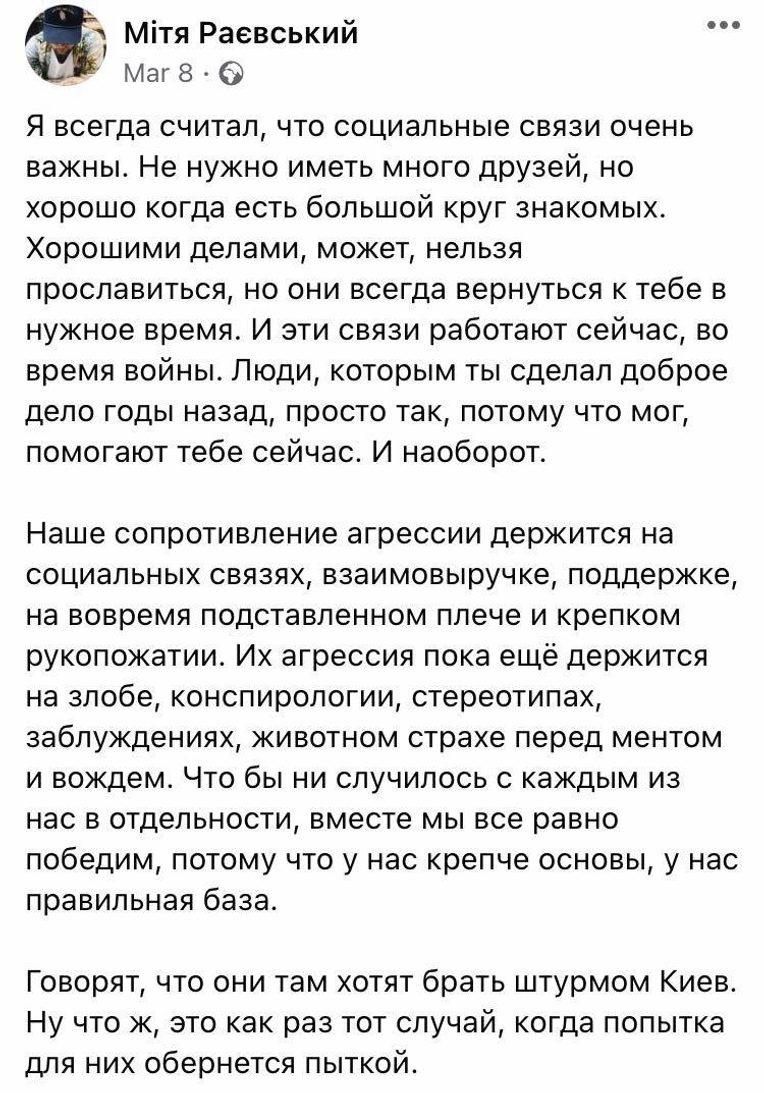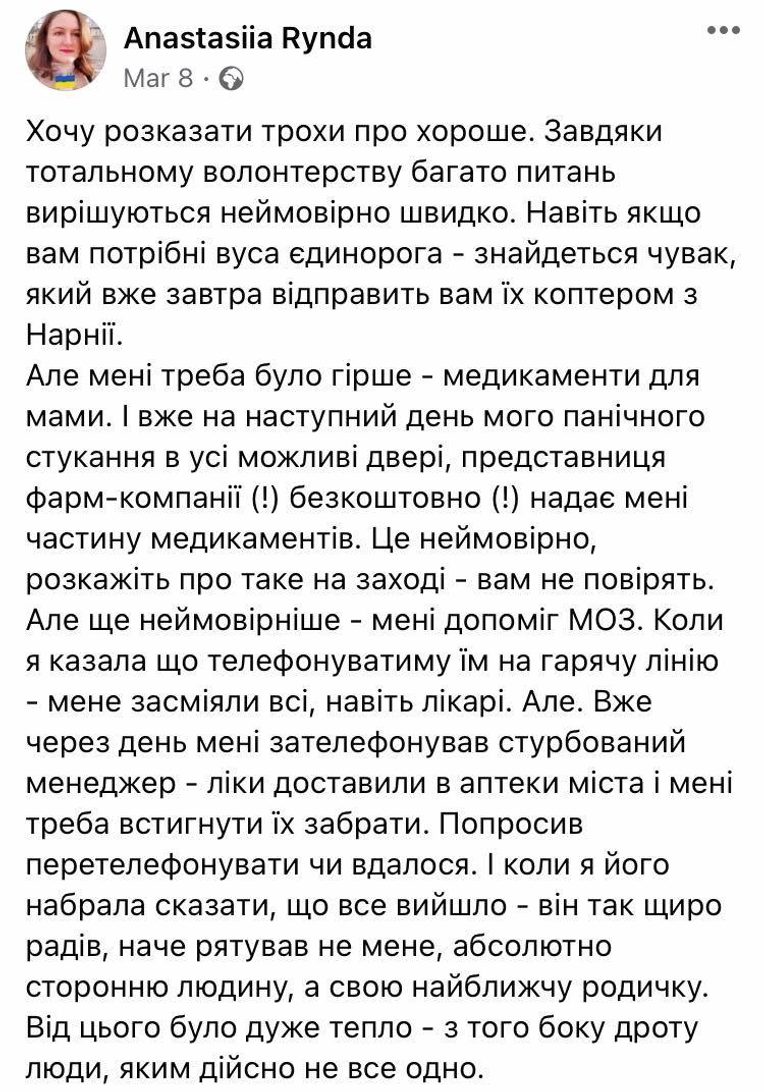“Even if You Need a Mustache of a Unicorn”: Informalities and War in Ukraine
From the Series: Russia’s War in Ukraine, Continued
From the Series: Russia’s War in Ukraine, Continued

Corruption kills. Sometimes, though, it kills your enemies. At least, this is precisely what happened in Zaporizhzhia region, where locals have logged illegally. According to the maps the Russian army used, there was a forest. In reality, however, illegal logging changed the landscape, so the airborne troops landed on open land. As to be expected, they were easily spotted by the locals, who promptly informed the Ukrainian army. As a result, Russian paratroopers were destroyed. Even in the twenty-first century, local knowledge retains its power. The bird’s-eye cartographic view that the Russian army—an archetypical late modern institution—relied upon was detrimental to its success. Russian forces did not take into account the power of the informal sector, its importance in Ukrainian society, and its ability to transform the landscape of the country.
Informalities were fundamental to shaping life in Ukraine before the war. Ukrainians relied on informal networks to procure scarce resources (Ledeneva 1998), maintain medical assistance programs (Polese 2014), substitute for gaps in social security programs (Polese 2016), and provide security (Volkov 2002). Informalities are practices that allow people to “get things done” (Ledeneva et al. 2018) in the face of legal obstacles and despite the failures of state institutions. They allowed Ukrainians to survive the late-Soviet-era shortages of goods. These practices also allowed Ukrainians to make do on the “ruins” of the Soviet collapse in the 1990s (Bazylevych 2014). Ultimately, they have become ingrained so deeply that no bureaucratic business was thought possible without informal relations. It was hard for my older relatives in Ukraine to understand how I could obtain documents from my Canadian university without, for example, giving presents or establishing some kind of friendship with administrators first. Their experience was not unique, of course. Millions of Ukrainians were socialized to creatively interpret legal norms and rely first and foremost on networks of friends, acquaintances, and other people to develop trust and reliance on one another to get things done.
On February 24, when Russia started its full-scale invasion of Ukraine, it was on the basis of these informal practices that Ukrainians were able to organize and develop volunteer networks. While the armed forces were largely preoccupied with the war itself, millions of Ukrainians fled their homes. At the same time, more than one hundred thousand people rushed to sign up for the Territorial Defense Forces (TDF), a network of local volunteer units that were created to help the army protect cities and villages. These volunteers were often supplied with nothing more than automatic rifles. Thousands of Ukrainians organized to help internally displaced persons (IDPs) with food, transportation, housing. They also supplied the TDF with bulletproof vests, medical kits, and clothing. To do all this, volunteers relied almost exclusively on informal networks and not on state institutions.
On Facebook, a Ukrainian journalist aptly summarized this phenomenon as, “Good deeds, perhaps, will not always bring you fame, but they will always return to you in a moment of need. These relationships work right now, during the war. People who you helped years ago, who you helped without getting anything from it—helped just because you could—are helping you back now. And vice versa. Our resistance to the invaders is built on those social connections, mutual assistance, and mutual support, on a just-in-time-lended-shoulder and a firm handshake” (see screenshot below). The networks, created by “good deeds,” help Ukrainians to organize incredibly complex informal logistics that supply the IDPs and the TDF with everything from food and shelter to helmets and warm clothing.

I am impressed by the sheer scale and incredible power of these informal volunteering networks. People who try to find bulletproof vests in European countries, for example, complain that Ukrainians already cleaned out all the shelves to supply the TDF. While there are obvious limits to this informal home front—planning and coordination, for example—it has its advantages. Volunteers are able to accomplish their goals quickly and resourcefully, relying on informal networks and creative ways to interpret norms and unobstructed by bureaucratic certification procedures. As a friend of mine recapped on Facebook, “Because of the total volunteering, many needs are satisfied quickly. Even if you need a mustache of a unicorn, there will be someone who’s going to send it to you via quadcopter from Narnia.” A volunteer sorting humanitarian aid with me put it in similar terms: “If need be, volunteers can find you a live dragon right now” (see screenshot below). They all express a rather common refrain: people who lived in a culture that was formed by constant shortages know how to be creative to get what they want and need. They know how to cooperate in order to accomplish a common goal. This is ultimately an empowering practice. During peaceful times, working one’s connections may often look like corruption. But now it looks like a highly effective network that helps us resist the invaders, save the lives of those who protect us, and shelter those in need.

Bazylevych, Maryna. 2014. “Disorder and Civilization: The Future(s) of Ukrainian Medicine.” Czech Sociological Review 50 (6): 821–37.
Ledeneva, Alena. 1998. Russia’s Economy of Favour. Cambridge: Cambridge University Press.
Ledeneva, Alena V., Anna L. Bailey, Sheelagh Barron, Costanza Curro, and Elizabeth Teague. 2018. Global Encyclopedia of Informality: Understanding Social and Cultural Complexity. London: UCL Press.
Polese, Abel. 2014. “Informal Payments in Ukrainian Hospitals: On the Boundary between Informal Payments, Gifts, and Bribes.” Anthropological Forum 24 (4): 381–95.
Polese, Abel. 2016. Limits of a Post-Soviet State: How Informality Replaces, Renegotiates, and Reshapes Governance in Contemporary Ukraine. Stuttgart: ibidem Press.
Volkov, Vadim. 2002. Violent Entrepreneurs: The Use of Force in the Making of Russian Capitalism. Ithaca, NY: Cornell University Press.